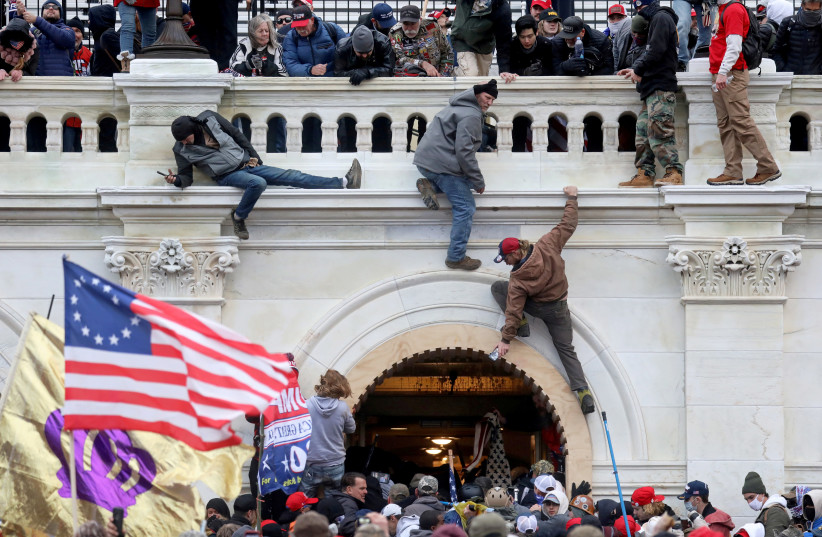About half of Republicans would not vote for Donald Trump if he were convicted of a felony, a sign of the severe risks his legal problems pose for his 2024 US presidential bid, according to a Reuters/Ipsos poll that closed on Thursday.
The former president and current front-runner in the Republican nomination contest for the November 2024 presidential election, Trump is due to appear in court on Thursday to face federal charges he led a conspiracy to overturn his loss in the 2020 election.
He has separately been charged in two other criminal cases: one in a New York state court which revolves around hush money payments to an adult film actress; and another in federal court where he is charged with retaining sensitive and classified national security documents after he left office in January 2021.
Survey responses showed little deterrence
The two-day Reuters/Ipsos poll asked respondents if they would vote for Trump for president next year if he were "convicted of a felony crime by a jury." Among Republicans, 45% said they would not vote for him, more than the 35% who said they would. The rest said they didn't know.
Asked if they would vote for Trump if he were "currently serving time in prison," 52% of Republicans said they would not, compared to 28% who said they would.
Trump has proclaimed his innocence in all the cases against him and accuses prosecutors of conducting a "witch hunt" that aims to derail his campaign.

Two of the cases were brought by the US Department of Justice, which ultimately answers to Trump's nemesis, Democratic President Joe Biden, but which has taken steps to insulate investigations from political influence. The New York state case is led by a prosecutor who is an elected Democrat.
The new poll showed that Republicans broadly sympathize with Trump's accusations of political persecution. Seventy-five percent of Republican respondents agreed with a statement that the charges against Trump were "politically motivated." Twenty percent disagreed and the rest said they didn't know.
About two-thirds of Republicans - 66% - described as "not believable" the accusation in Trump's latest indictment that he solicited election fraud. Twenty-nine percent said it was believable and the rest were not sure.
Republican respondents also described themselves as more likely to withhold their votes on Election Day from an unnamed convicted felon than one named Donald Trump. When asked how a felony conviction would affect their voting in an abstract sense, 71% of Republicans said they would not vote for the convict, compared to 52% if it were Trump.
Trump has capitalized on his indictments since the first charges were filed in April, increasing his lead in the Republican nomination contest over his closest rival, Florida Governor Ron DeSantis.
The new poll showed Trump's dominance only growing in that contest, holding onto the 47% of Republican support he also had in a July poll, while DeSantis' share slipped six percentage points to 13%.
The Reuters/Ipsos poll was conducted nationwide, gathering responses online from 1,005 US adults. It had a credibility interval, a measure of precision, of about four percentage points.
